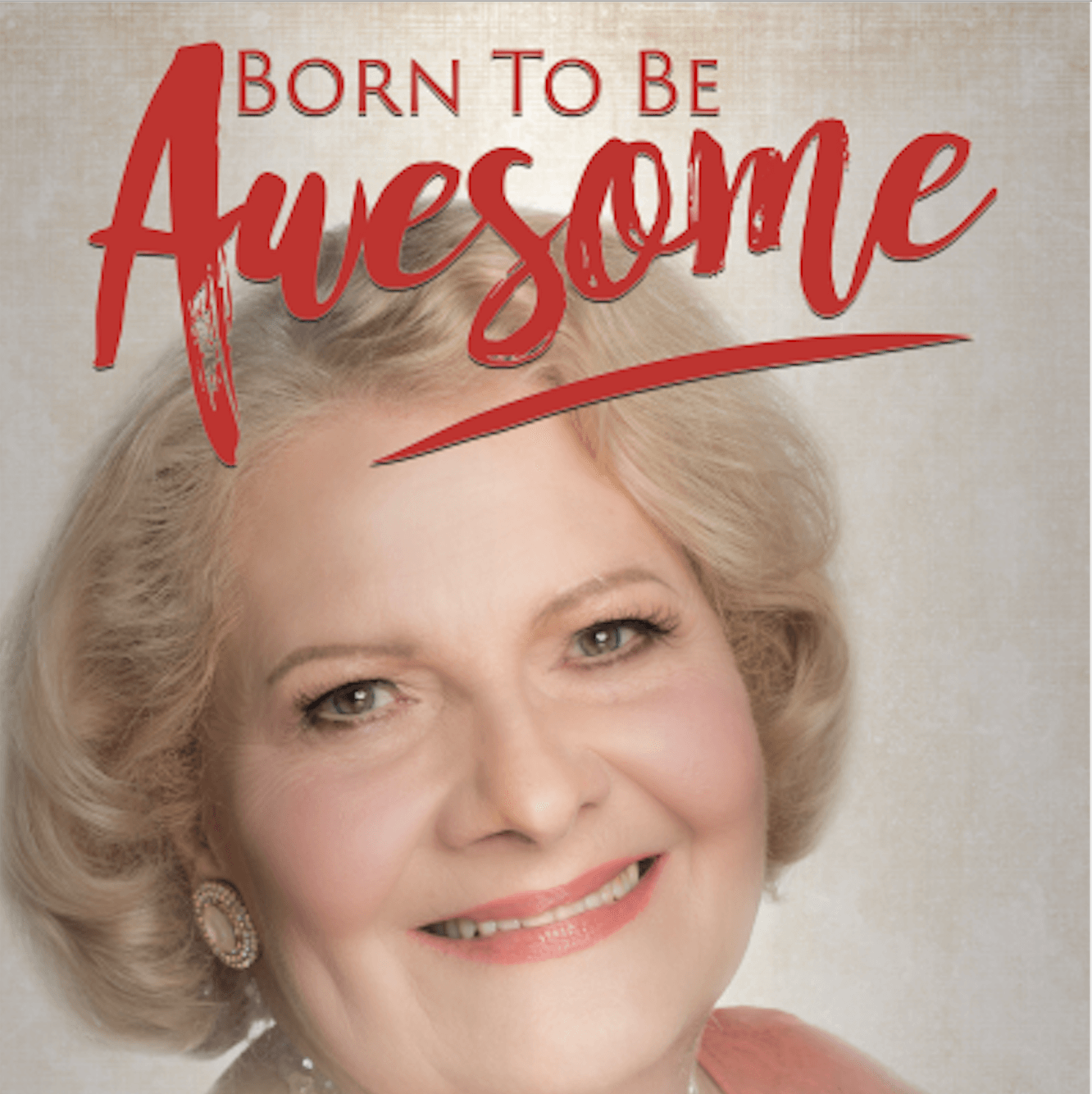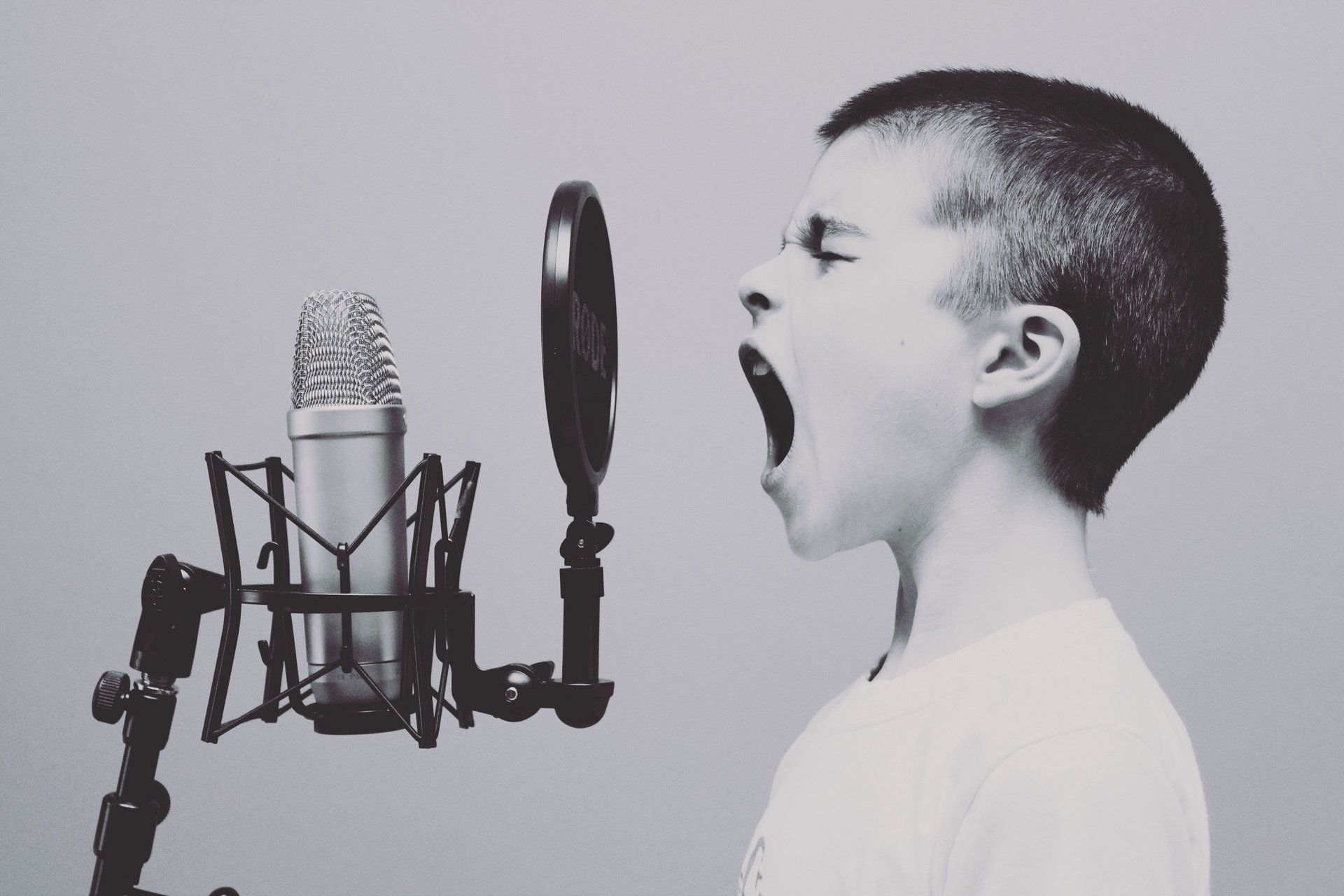Blog Articles

The voice of a leader is a powerful beacon that guides people on the right path. One’s journey toward success is never simple, and many people need someone to guide them along the way. Carol Stanley is here to inspire, train, and give you and your leadership team the tools you need to gain confidence, poise, and command over your voice, body, mind, and spirit while presenting from stage. Empower yourself with presentation skills that boost your charisma and give voice to your soul. It’s time to go from business leader to brilliant motivator, and compel people to take action.

1) Have you ever watched someone go to the podium or stand on stage, and without using the microphone to sing or speak, their voice can be heard throughout the audience, and yet they aren’t yelling? How do they do that? 2) Then on the other hand, have you ever watched someone speak or sing into a microphone and they’re still difficult to hear or understand? The common denominator here is projecting their voice, the person in example #1 did, and the person in #2 did not. Whether you’re speaking or singing, to a large audience or a small group, the success of your performance depends on whether or not your audience can hear and understand your message. The key to projecting your voice is not to get louder, but to be in more control, and understanding the phonation of your voice. Project or yell? To yell is to use your vocal cords to be heard, which can, if overused, damage them. To project is to know how to open up the 2 phonation pharynxes or “horns,” and use breath from your diaphragm, which is located just below the lungs and is the major respiratory muscle. It all starts with understanding the throat and upper horn opening muscles, strengthening them and consciously relaxing constricting muscles in the system. Breathing correctly, using the strength of not only your diaphragm but your stomach muscles as well is important. But if you begin with breath and focus on it, it can hamper your throat opening ability. The key to vocal success is to focus on opening and then the diaphragm kicks in automatically. Have you ever yelled at a naughty pet? The stomach muscles automatically kick in. But the real success key is opening up. How to breathe properly… Let’s begin by saying that you should avoid shallow breathing – take deep breaths, breaths that are strong and come from using your diaphragm. It’s much easier to do this if your are practicing good posture, stand erect and open yourself up to draw in good deep breaths. Pay special attention to your body as you’re breathing…when you inhale and exhale, your chest and shoulders should not rise and fall, in fact, the only thing that should be moving is your stomach. Breathing like this may take some practice, but you will feel the difference. One way to practice belly breathing is by putting one hand on your chest and one on your stomach, as you breathe, make sure the only hand that is moving is the one on your stomach. Cardio Exercise Another great method of breathing correctly is to spend at least 30 minutes daily doing cardio exercises, this will help you learn to control your breath better. (it doesn’t have to be work, it can be fun like tennis or dancing). Be sure you take air into your low lung, which feels like your stomach. Exhale through your mouth with a blowing action. This activates the diaphragm to breathe to low lung for you. Be sure your chest does not move up and down with your breath. Hold it up and breathe through it to your tummy. You will not cramp if you will use low lung breathing while you do your exercises. One way to avoid shallow breathing is to have good posture. Not only will this free up your diaphragm to do its job, but it will open up your body so all of your organs can function better. In today’s world we see a lot of slouching, whether it’s over a computer, watching TV, looking at one of our electronic devices or just walking down the street. This too might take some real practice to make it part of our everyday life. You should always remind yourself that good posture is holding your shoulders back and your chin up. A great exercise is to pull your arms up to the ceiling, then out to your sides, then drop your arms but leave your chest up and open with your shoulders relaxed, down and back, and your crown of your head pulled up to the ceiling with an imaginary bungee cord. You will feel ½ inch taller. This is called stature and must be used while being grounded (feeling the earth up through your feet and your core staked down between your feet into the ground), especially when performing. When you ground your body, your mind calms and grounds as well. As a voice performance coach, I can help you develop proper breathing, and other techniques that will help you be able to project your voice with comfort and provide clarity and strength to your performance. Looking for a voice coach? I am Carol Stanley and I am a Voice Performance and Presentation Skills Coach. I train speakers and singers (business owners, ministry leaders, stage performers, beauty pageant competitors, workshop leaders, etc.) to gain confidence, poise, and command over their total voice, body, mind, and spirit. I can help you strengthen your voice and show you some very effective voice physiology and performance skills, skills that will strengthen your whole phonation system and not damage your vocal cords. Remember your delivery is 97% of your communication and only 7% is your content. Contact me, I offer Private or Group Coaching, and I would love to speak with you. In a future article I’ll talk about How to Better Annunciate to be Heard and Understood Carol Stanley See my new book, Born to Be Awesome, A Guide To Presenting With Brilliance on Stage or Camera Through the Power Of God in You.

You love to sing, play your instrument, dance or prepare and give a speech…if only you didn’t have to present it in front of a live audience. Even though you feel prepared, you can’t sleep the night before, your stomach is in knots, and you’re hoping for a bout of the flu. What’s wrong with this picture? If you love doing what you do, why don’t you love doing it for others? It sounds like you may have a lack of confidence, or as it’s sometimes called performance anxiety… “Confidence = Security = Positive Emotion = A Better Performance” – Tony Schwartz At one time or another, everyone has a touch of insecurity about what we do…it’s human nature to have a little bit of self doubt, in fact, it’s a good thing, it helps keep us humble and not over-confident. But when it literally makes you feel ill, it’s too much. Remember stage nerves are your best friend. They are present to insure you do your best work! There are some things you can do to start building your confidence, but keep in mind change won’t happen overnight, these are things you need to practice, and soon your confidence will begin to grow. Techniques to Build Your Performance Confidence 1. Prepare well so you are comfortable with your presentation. 2. Begin by reminding yourself that everyone gets nervous before a performance…“Being nervous is not something you should be ashamed of, it means you want to do your best, and you really care.” – Paula Creamer 3. Stop thinking about yourself and how well or poorly you will perform…think about your audience and what you can offer them. Look at your audience and connect with them so you can offer them the best of what you have to give. 4. For several minutes before your performance, if possible, find yourself a quiet place and practice deep breathing. 5. Remember, if you don’t tell them, your audience has no idea that you’re nervous…show them through your smile and your body language that you are confident and happy to be there. 6. Whether it’s a speech or a musical number, find meaning in what you are saying or singing…believe and feel what you are presenting. Take time for an honest reflection after each of your performances. 1. Was your performance meaningful to you? 2. How did you feel during your performance? Had your nerves settled down? 3. Was the performance as heartfelt as it should have been? 4. How did you feel after your performance…were you simply glad it was over and you survived, or did you feel you had given your best. Decide if you need to change your “self-talk”. Self-talk is very powerful, the things we say to ourselves and how we say them can have a huge impact on your performance. Rather than think this – “I am afraid” , think this – “I am prepared and will perform well.” Rather than think this – “I can never do this“, think this – “I can do this and anything I put my mind to.” Rather than think this – “I don’t deserve to perform well“, think this – “I am prepared and I deserve a successful performance.” Look for the negative things you think to yourself, and you will find them. Make a real effort to change them to positive, you’ll find that too. If you are constantly doing negative self talk, changing the way you think about and talk to yourself may take some time to master, but when you do you will develop more confidence that will translate into a better performance. Your audience will sense your confidence and believe in what you’re doing and they will receive your performance better. Looking for a voice coach? I am Carol Stanley and I am a Voice and Presentation Skills Coach. I train speakers and singers (business owners, ministry leaders, stage performers, beauty pageant competitors, workshop leaders) to gain confidence, poise, and command over their total voice, body, mind, and spirit. Contact me, I offer Private or Group Coaching, and I would love to speak with you. Carol Stanley About Carol Stanley Voice and Presentation Skills Coach Carol Stanley trains speakers and singers (business owners, ministry leaders, stage performers, beauty pageant competitors, workshop leaders) to gain confidence, poise, and command over their total voice, body, mind, and spirit.

Happy New Year everyone! I’m excited to bring you this brief, but powerful video to help you present yourself the best way possible. Your voice, is not only a gift, but as I’m sure you’ve heard, it’s an instrument that you carry within you wherever you go, and whatever you do. I hope you will use it well to bless your life and the lives of those around you. In this new year, let’s make it great. Let’s make it a year where you realize the dream in your heart to speak with great confidence and/or sing with power and charisma. The important things you must remember is how to care for and properly use your instrument. Carol Stanley

When you’re enjoying a performance by a talented vocalist, it may seem so effortless…singers often make it look so easy…you want to be just like them, but there is more that goes into a good performance than meets the eye. These vocalists have more than likely gone through rigorous training, learning and practice. They have learned the the common mistakes so many singers make, and have learned to correct and avoid bad practices. Could some of what they have learned be the very things that may be holding you back from performing vocally at your very best? These are common mistakes made by many singers: Not enough practice: They say “Practice makes perfect”…well, maybe not perfect. Perfect practice makes for perfect performance. To be a good singer takes dedication, and the dedication you can give is by investing your time in practice. If you feel like you already practice enough, make a commitment to 10-15 more minutes each day, the effort will definitely pay off. if you feel like your practice sessions are too difficult, consider cutting them in halves or thirds and practice 2-3 short periods a day rather than 1 long one. Not focusing on what you are practicing: Do you find yourself simply going through the motions? Instead, each time you practice, focus on one aspect of your singing that you want to improve on: maybe it’s breathing, enunciation, how you sing your vowels, or phrasing. Because you don’t want to form any new bad habits, ask your voice coach to help you with your areas of focus in order to get them right. As you do this, set some realistic goals for yourself, just like in any other aspect of life…without a target to aim for, your efforts are random and you could soon lose interest. Not properly warming up your voice, or not warming it up at all: Have you ever seen a professional athlete “take the field in competition” without warming up his muscles? The muscles you use as a singer, are just as important as those of an athlete, if you don’t warm them up, they can’t perform at their best, and stand at risk of injury. Shouting rather than singing: All too often a singer tries to sound like his/her voice is louder and more powerful than it really is. The effect she creates sounds forced, and you can damage your vocal chords. Instead, work on learning how to project your voice, sing with emotion, develop your stage presence, and learn your voice’s limits. Not eating properly or drinking enough water before a performance: These are both key components to using your voice at it’s best…Eat nourishing food that supplies your body with the the nutrients it needs and be sure to drink enough water to keep your voice hydrated, rather than eating greasy fast food or drinking soda, which only creates phlegm build-up (a singer’s worst enemy) and a lack of stamina. With excess phlegm, you’ll find yourself needing to clear your throat all the time, and your performance will be much less than perfect. Also, each time you clear your throat using sound, your vocal cords rub on each other, creating friction and swelling. A better technique for clearing your throat is to only allow air to come through the cords as if behind a “hot” microphone. Don’t allow yourself to engage the cords during a throat clear. if you’re in a hurry, take the time to eat and drink healthily. Not practicing good posture: When your body is slumped over and not in good alignment, your chest and rib cage collapse downward, not allowing your diaphragm or your lungs to get enough oxygen or open up and produce the best sound you have. Not breathing properly: Gasping for air, or taking shallow breaths, rather than breathing from the diaphragm or low lung (feels like air is filling your stomach and abdomen) make it obvious that this is an untrained voice, and lowers the quality of the performance. Looking for a voice coach? I am Carol Stanley and I am a Voice Performance and Presentation Skills Coach. I train speakers and singers (business owners, ministry leaders, stage performers, beauty pageant competitors, workshop leaders, etc.) to gain confidence, poise, and command over their total voice, body, mind, and spirit. I can help you strengthen your voice and show you some very effective voice physiology and performance skills, skills that will strengthen your whole phonation system and not damage your vocal cords. Remember your delivery is 97% of your communication and only 7% is your content. Contact me, I offer Private or Group Coaching, and I would love to speak with you. Carol Stanley See my new book, Born to Be Awesome, A Guide To Presenting With Brilliance on Stage or Camera Through the Power Of God in You.

Just as athletes prepare and warm up their muscles before participating either in a practice or a competition, so should vocalists prepare and warm up their vocal cords and voice phonation muscles before practicing or performing. Your vocal cords or vocal folds are little muscles that can be stressed or damaged (just like an athlete’s) if they are not warmed up in preparation to perform. In addition to the possibility of damage, your performance may suffer if all these muscles are not properly stretched, allowing the blood flow to increase. Before each performance your goal should be to relax and soothe your throat, and this can be done without purchasing expensive sprays or throat lozenges… Home remedies to relax and soothe your throat: Get plenty of rest the night before… Rest is essential to all muscles performing at their peak, and additionally, if you’re too tired when your perform, you could injure your vocal chords. Stay hydrated and keep your voice lubricated (drink one half your body weight in water, not counting other liquids) Although it’s important to drink before and sometimes during your performance, there are things you should definitely stay away from: Very cold water or other beverages Super hot drinks (you can breathe in the steam from a hot drink, just don’t drink the hot liquid) Dairy products Caffeinated drinks Soft drinks Alcoholic drinks When you drink water, drink soothingly warm or room temperature water Make a warm cup of water, honey & lemon, it not only tastes good, but can relieve a tired sore throat. Foods you should avoid… Spicy foods Chocolate Peanut butter Anything dairy Pasta Warm Up Your Voice (but don’t overdo it) While a good warm up is desirable and important, you can overdo it by singing too high, too low, too long or too loud. Keep your warm ups in the middle range so you don’t stress your voice. Begin with a few breathing exercises that will help you avoid getting out of breath. One example of a breathing exercise is… Take a normal, everyday breath, then blow out through pursed lips like blowing out birthday candles until your air is gone. Then totally relax your body all over and feel where the air goes down deep into your low lung, which feels like your tummy. You can take in another easy breath and then exhale, making an “s”, or hissing sound as you do. Keep your shoulders and chest low and relaxed. Repeat several times, focusing on the lower abdomen, which is sometimes easier to do if you place a hand on the abdomen to remind you of your focus place. You can use bubble lips, gently singing from top down and then, being sure you stay upper body relaxed, sing from bottom up. Singing from bottom up is generally where we want to tense up a bit, so consciously relax as you bubble up from the bottom to top. Sing with bubble lips top down as it is easier and bottom up (relaxed both ways) several times. This will help you coordinate your open throat and low lung breathing, because in order to bubble your lips, you must engage your tummy. Your vocal warm up uses bubbling as it also forces your upper lip to warm up and relax in an upward motion, thus releasing your upper pharynx space for singing or speaking well. Looking for a voice coach? I am Carol Stanley and I am a Voice Performance and Presentation Skills Coach. I train speakers and singers (business owners, ministry leaders, stage performers, beauty pageant competitors, workshop leaders, etc.) to gain confidence, poise, and command over their total voice, body, mind, and spirit. I can help you strengthen your voice and show you some very effective voice physiology and performance skills, skills that will strengthen your whole phonation system and not damage your vocal cords. Remember your delivery is 97% of your communication and only 7% is your content. Contact me, I offer Private or Group Coaching, and I would love to speak with you. Carol Stanley Voice and Presentation Skills Coach Carol Stanley trains speakers and singers (business owners, ministry leaders, stage performers, beauty pageant competitors, workshop leaders) to gain confidence, poise, and command over their total voice, body, mind, and spirit.

“93% of good communication is in the mind, body and voice. Only 7% are your words, so how you deliver your words is vital.” – Carol Stanley Whether you are an up and coming speaker, a seasoned speaker, a reluctant speaker, a professional speaker or an occasional speaker, you all have one or more of these goals in mind: To inspire To be confident To entertain To educate To do your best If you’re a professional speaker, to be called back What you say during your speech is obviously very important…you have a message to deliver. But “how” you deliver it will be the great determining factor in how it’s received. Along with voice inflection, your body language plays a huge role in how well you and your message is received. Today, life and all of its situations have become very visual…with the technology we all depend on so much, we have come to expect great visual experiences…this is how you will be judged also. So with that being said, I would like to share with you some body language tips that will help you win over your audiences. Using the Power of Body Language: Use your face… Begin by making eye contact from the start. People prefer people who will look them in the eye, without good eye contact, the listener may wonder if you can be trusted or if your mind is somewhere else. Also use expression in your face. Use your mouth for more than just speaking…Smile! This will make your audience more comfortable, a smile is a powerful tool! Smiling, nodding and “open gestures” are positive gestures that can help your listeners accept what you are telling them. Use inflection in your voice to add interest and emphasis throughout your speech. Use movement… Although you don’t want your arms flailing about, they can be used in strong, natural and expressive movements. Begin your speech with your arms at your side (this is a very natural way for your to stand) as your speech goes on, when it’s appropriate, use your hands in small open gestures. Stand straight and keep your chest open…which means avoid crossing our arms in front of you in any way. If you’re not stuck at a podium, feel free to move about the stage or stand a bit, but don’t be a pacer by moving back and forth, back and forth…move with purpose. If you are speaking to a small group, walk around your audience, your audience will follow your movement and stay more in touch with you and your message. Whatever you do on stage or however you use body language, it’s only effective if it’s natural and fits whatever you are talking about. Looking for a voice coach? I am Carol Stanley and I am a Voice and Presentation Skills Coach. I train speakers and singers (business owners, ministry leaders, stage performers, beauty pageant competitors, workshop leaders) to gain confidence, poise, and command over their total voice, body, mind, and spirit. Contact me, I offer Private or Group Coaching, and I would love to speak with you. Carol Stanley

Whether you’re a vocalist, a speaker, an actor, a dancer or a performer of any kind, getting on a stage and performing in front of an audience can be challenging and a little nerve wracking. Most performers, even professionals, get a little nervous before a performance, that’s quite normal, and is quickly overcome. But for some, the fear is unbearable. Being this nervous and frightened can cause a performer to freeze totally back down, and can ruin future opportunities. Performance Anxiety Stage fright, often referred to as performance anxiety, is often caused by lack of self confidence, feelings of incompetence or being unprepared, and has 4 stages: Anticipation: Stressing and worrying about how the performance will appear. Avoidance: Looking for opportunities to to get out of the performance altogether. Anxiety and Panic. Experiencing such symptoms as: Extreme nervousness Shaking Dry mouth Increased heart rate – it can be so bad you think you might have a heart attack Nausea or stomach ache Cold hands Difficulty breathing Appraisal: This occurs after the performance is complete, when the performer judges how he/she did and how it might have been accepted. We all have opportunities throughout our lives to be in front of an audience, and although we may always have little butterflies before a performance, feeling the extreme effects of stage fright is something we don’t want to experience…if you follow these few tips, you probably won’t have to. Controlling or Overcoming Performance Anxiety Stage fright is full of “what if’s”… What if I forget the lyrics, my lines, my speech or my dance moves? What if my voice cracks or shakes? What if the audience is bored? What if I appear foolish? What if, what if, what if… Starting from the moment you know you will be performing, don’t panic, just begin to prepare and practice. Nothing will make you feel more confident than if you are well prepared. Other techniques that are helpful Practice relaxation techniques: Some people will use hypnosis or massage to relax. Find whatever works for you and use it. Breathing exercises will help relieve your stress. As you breathe deeply and slowly, at least 25 times, your body will begin to relax. Sips, not drinks, of warm water (especially if you are a vocalist) will keep your mouth from drying out. Avoid drinking caffeinated drinks before any performance, because the caffeine can get your heart pumping faster and also cause the jitters. Stage fright is a build up of anxious energy, you can alleviate most of it by doing some type of exercise prior to leaving your home for the performance. Remember, the presentation must be about your audience. Not You. Capture your self thoughts and choose to think about giving your gift of you and your message to them. It feels great to give gifts. Looking for a voice coach? I am Carol Stanley and I am a Voice and Presentation Skills Coach. I train speakers and singers (business owners, ministry leaders, stage performers, beauty pageant competitors, workshop leaders) to gain confidence, poise, and command over their total voice, body, mind, and spirit. Contact me, I offer Private or Group Coaching, and I would love to speak with you. Carol Stanley

Cold weather is no friend to the voice of a singer (or any other type of vocal performer)…cold, dry air can cause singers some frustrating challenges. Yes, whether you’re a singer or not, cold weather can affect your voice, but the last thing a performer needs is a cough, a cold or a sore throat, especially just before a performance. Important tips to keep your voice healthy during the winter chill: Breathe smart: When you’re out in the cold, make the effort to breathe in and out through your nose. It’s alright to exhale through your mouth, but always inhale through the nose, which gives the air an extra moment to warm up and absorb moisture before it hits the lungs and larynx. Drink plenty of water: Because cold air is typically dryer, it’s important to stay hydrated, which means drinking more water than you normally do. Even your furnace is working against you, because as it heats the air, it also dries it out. Buying a humidifier to use during the winter months, or any other time if you live in a dry climate, would be a good investment. Dress wise: Don’t go outside when temperatures have dropped unless you are wearing a hat and scarf. Warm from the inside: Drinking warm drinks not only feels good on a cold day, but it’s good for your vocal chords as well. I would suggest that the warm drinks you choose be caffeine free, but if they do have caffeine in them, remember the caffeine works against the whole process of hydration, so make sure you also drink a glass of water for every cup of caffeinated drink. (It would be much easier and simpler just not to drink drinks with caffeine). If you’re a tea drinker, add honey to your tea for a throat soothing refreshment. Also, there are good throat sprays available that can help add moisture to your throat, sinuses and nasal passages. Get plenty of sleep: By getting a good night’s sleep, a little extra if possible, you are strengthening your body and helping it to heal. Don’t forget your warm-ups: Warm or cold, people who use their voice to sing or perform need to always warm up their vocal chords to get them ready before a performance. (In a future article we’ll talk about some great vocal warm-ups if you don’t already have some you use.) The truth about warming up the voice is it is equally important to warm up the muscles of the vocal phonation system as well as the vocal cords. Looking for a voice coach? I am Carol Stanley and I am a Voice and Presentation Skills Coach. I train speakers and singers (business owners, ministry leaders, stage performers, beauty pageant competitors, workshop leaders) to gain confidence, poise, and command over their total voice, body, mind, and spirit. Contact me, I offer Private or Group Coaching, and I would love to speak with you. Carol Stanley

Most of us will never be professional speakers or performing artists, but we will all have the opportunity to stand before a group of people to give presentations, share thoughts, perform, lead discussions or any number of reasons throughout our lives…. Do you want to be that speaker or performer who… people can’t hear or understand is uninspiring is unexciting Or would you rather be that speaker or performer who... people look forward to hearing people can connect with whose voice is clear and exudes confidence projects the feeling they are “present” and happy to be there whose excitement and passion is contagious So, whether you become a professional or not, wouldn’t it be wonderful to always stand with confidence and do the best that you can do? How a Voice Presentation Coach can help you: Like most athletes, you may have natural abilities and talents, but athletes who want to “up” their game and give their best performance on the field or court work with a coach. Your skills, though different, are the same – they can benefit and improve from the experience and guidance of a coach, who will help you assess your abilities and then build on the natural talents you may already have. If you are like so many, you may think you don’t have natural abilities. But you do nevertheless, they simply need to be tapped into, trained and brought forward. A good voice coach will give you the training and encouragement you need to stand before an audience. Many years ago, a young boy’s parents enrolled him in voice lessons. The voice teacher told him he was monotone and couldn’t carry a tune. (Obviously, he never returned for further training) Although this assessment was untrue, the boy carried this critique throughout his life and was always embarrassed to sing, even in groups. We all need encouragement! A good voice coach will teach you technique such as phrasing, intonation and voice fluctuation. A good voice coach will teach you how to relieve tension before a performance, teach you about posture and how to use your whole body to project your performance, how to warm up your voice and how to breathe properly. These are skills that everyone can use in all facets of life. Whether you will use these skills on stage or not, wouldn’t you just like to perfect them? If you are interested in bringing out the best in yourself… Contact me, I offer Private or Group Coaching, and I would love to speak with you. Carol Stanley
